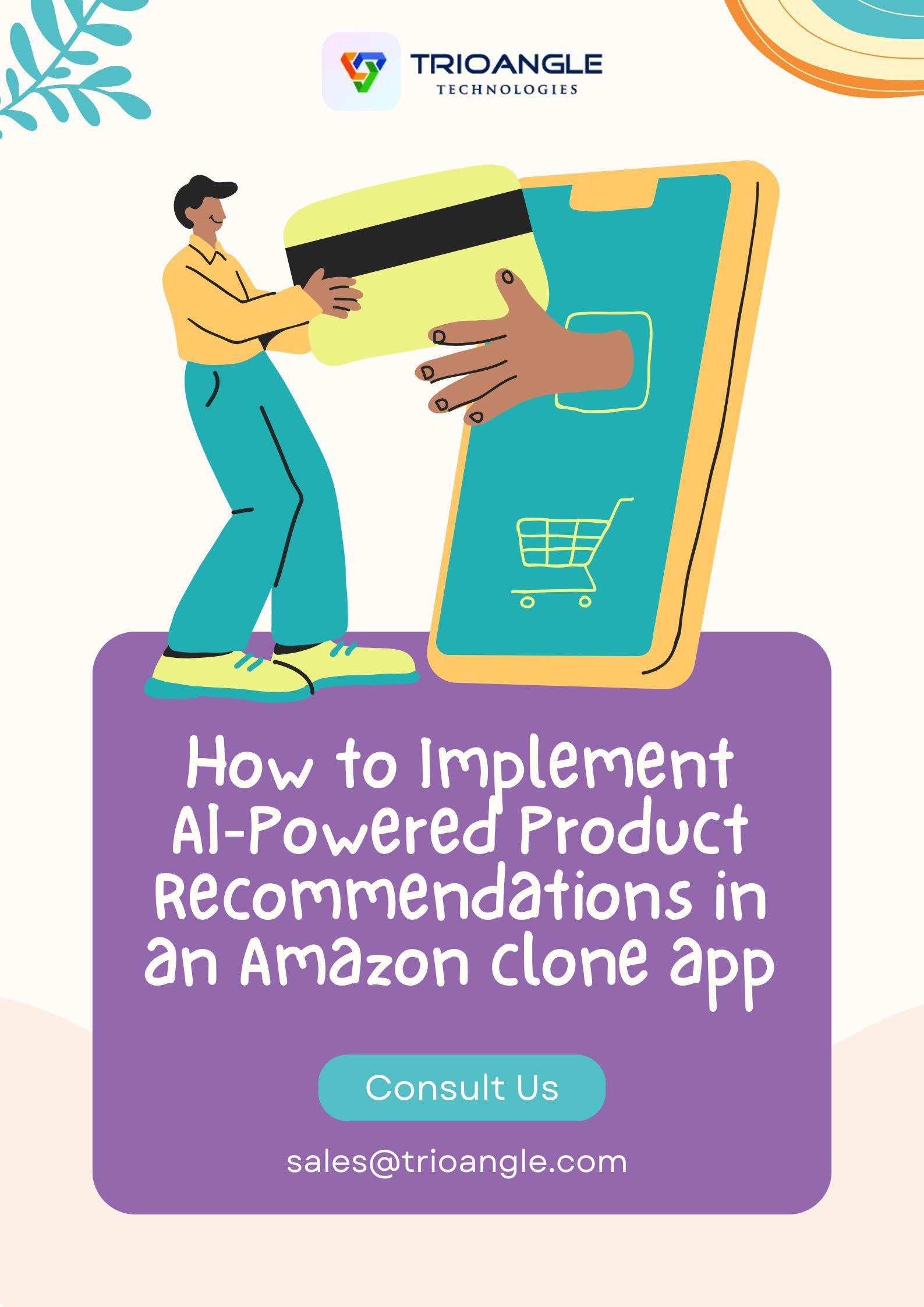The global neural processors market is forecast to surge from USD 176 million in 2025 to USD 1,010 million by 2035, representing a compound annual growth rate (CAGR) of 19.1%. This rapid expansion is driven by increasing deployment of dedicated AI hardware across smartphones, wearables, smart TVs, autonomous vehicles, and edge computing platforms. NPUs (Neural Processing Units) are increasingly recognized as essential for low-latency, energy-efficient, and privacy-focused AI operations on-device, reducing reliance on cloud infrastructure.
Quick Stats of the Neural Processors Market
Industry Value (2025): USD 176 million
Forecast Value (2035): USD 1,010 million
CAGR: 19.1%
Leading Segment in 2035: Inference operations (67% share)
Top Growth Region: United States
Key Players: NVIDIA, Intel, Google (TPU), IBM, Qualcomm
The market represents a niche within the semiconductor sector (1–2% share) but plays a larger role in AI acceleration (5–7% share). Within edge computing, NPUs hold a 3–5% share, reflecting their role in enabling real-time, on-device intelligence.
Click Here for More Information:- https://www.futuremarketinsights.com/reports/neural-processors-market
Analyzing Neural Processors Market by Top Investment Segments
Inference operations are poised to dominate with 67% market share in 2025, fueled by demand for facial recognition, speech-to-text, and other AI tasks at the edge. These workloads are executed locally to improve privacy and reduce cloud dependency. Industry leaders such as NVIDIA, Qualcomm, and Intel are refining NPU designs for low-power, high-efficiency inference. Emerging technologies, such as Arm’s Ethos-U65 microNPU, are enabling AI functionality in wearables, IoT devices, and smart city infrastructure.
Neural Processors Market Analysis By Application
Smartphones and tablets will lead application adoption with 24.4% market share in 2025. NPUs in these devices power AI-enhanced photography, real-time translation, and intelligent user experiences. Google’s Tensor G3 chip, with its triple-core TPU, exemplifies this trend. With 89% of smartphones launched in early 2025 expected to feature dedicated AI hardware, mobile integration remains a core driver. Tablets are also benefiting, particularly in education and productivity, where offline AI functions are in demand.
Top Neural Processors Market Dynamics
Edge AI Growth and On-Device Intelligence Fueling Adoption
The shift from cloud-based AI to edge AI is accelerating adoption of NPUs in industries from healthcare to automotive. NPUs enable real-time processing for features such as face unlock, autonomous navigation, and predictive maintenance. The rollout of 5G and IoT ecosystems further strengthens their value proposition.
High Barriers to Entry and Architectural Fragmentation
The market faces scalability challenges due to high development costs, fragmented architecture standards, and geopolitical constraints. Designing NPUs demands specialized chip architecture expertise, limiting entry for smaller players. Export restrictions on advanced AI chips are also impacting supply chain stability.
Country Wise Analysis of Neural Processors Market CAGR 2025 to 2035
United States: 21.2%
China: 19.5%
India: 18.2%
South Korea: 18.2%
United Kingdom: 18.1%
The U.S. leads with strong AI R&D investments, semiconductor manufacturing capacity, and adoption in defense and healthcare. China’s growth is supported by self-reliance policies and mass deployment in surveillance and logistics. India, South Korea, and the UK show robust momentum, driven by AI adoption in mobility, consumer electronics, and national research programs.
Leading Neural Processor Suppliers
The competitive landscape is led by NVIDIA, Intel, and Google, with extensive AI chip portfolios and global reach. IBM, Qualcomm, and CEVA are delivering specialized solutions for targeted applications, while emerging firms such as BrainChip and Graphcore are innovating in neuromorphic and cost-optimized designs.
Notable developments include AMD’s XDNA NPU architecture for PC and edge AI, Google’s TPU v7 “Ironwood” with nearly 5× performance gains over its predecessor, and Cerebras’s deployment of record-breaking inference throughput for generative AI workloads.
Get Sample Report: - https://www.futuremarketinsights.com/reports/sample/rep-gb-22326
About Future Market Insights (FMI)
Future Market Insights, Inc. (ESOMAR certified, recipient of the Stevie Award, and a member of the Greater New York Chamber of Commerce) offers profound insights into the driving factors that are boosting demand in the market. FMI stands as the leading global provider of market intelligence, advisory services, consulting, and events for the Packaging, Food and Beverage, Consumer Technology, Healthcare, Industrial, and Chemicals markets. With a vast team of over 400 analystsworldwide, FMI provides global, regional, and local expertise on diverse domains and industry trends across more than 110 countries.
Contact Us:
Future Market Insights Inc.
Christiana Corporate, 200 Continental Drive,
Suite 401, Newark, Delaware – 19713, USA
T: +1-347-918-3531
For Sales Enquiries: sales@futuremarketinsights.com
Website: https://www.futuremarketinsights.com
LinkedIn| Twitter| Blogs | YouTube
Quick Stats of the Neural Processors Market
Industry Value (2025): USD 176 million
Forecast Value (2035): USD 1,010 million
CAGR: 19.1%
Leading Segment in 2035: Inference operations (67% share)
Top Growth Region: United States
Key Players: NVIDIA, Intel, Google (TPU), IBM, Qualcomm
The market represents a niche within the semiconductor sector (1–2% share) but plays a larger role in AI acceleration (5–7% share). Within edge computing, NPUs hold a 3–5% share, reflecting their role in enabling real-time, on-device intelligence.
Click Here for More Information:- https://www.futuremarketinsights.com/reports/neural-processors-market
Analyzing Neural Processors Market by Top Investment Segments
Inference operations are poised to dominate with 67% market share in 2025, fueled by demand for facial recognition, speech-to-text, and other AI tasks at the edge. These workloads are executed locally to improve privacy and reduce cloud dependency. Industry leaders such as NVIDIA, Qualcomm, and Intel are refining NPU designs for low-power, high-efficiency inference. Emerging technologies, such as Arm’s Ethos-U65 microNPU, are enabling AI functionality in wearables, IoT devices, and smart city infrastructure.
Neural Processors Market Analysis By Application
Smartphones and tablets will lead application adoption with 24.4% market share in 2025. NPUs in these devices power AI-enhanced photography, real-time translation, and intelligent user experiences. Google’s Tensor G3 chip, with its triple-core TPU, exemplifies this trend. With 89% of smartphones launched in early 2025 expected to feature dedicated AI hardware, mobile integration remains a core driver. Tablets are also benefiting, particularly in education and productivity, where offline AI functions are in demand.
Top Neural Processors Market Dynamics
Edge AI Growth and On-Device Intelligence Fueling Adoption
The shift from cloud-based AI to edge AI is accelerating adoption of NPUs in industries from healthcare to automotive. NPUs enable real-time processing for features such as face unlock, autonomous navigation, and predictive maintenance. The rollout of 5G and IoT ecosystems further strengthens their value proposition.
High Barriers to Entry and Architectural Fragmentation
The market faces scalability challenges due to high development costs, fragmented architecture standards, and geopolitical constraints. Designing NPUs demands specialized chip architecture expertise, limiting entry for smaller players. Export restrictions on advanced AI chips are also impacting supply chain stability.
Country Wise Analysis of Neural Processors Market CAGR 2025 to 2035
United States: 21.2%
China: 19.5%
India: 18.2%
South Korea: 18.2%
United Kingdom: 18.1%
The U.S. leads with strong AI R&D investments, semiconductor manufacturing capacity, and adoption in defense and healthcare. China’s growth is supported by self-reliance policies and mass deployment in surveillance and logistics. India, South Korea, and the UK show robust momentum, driven by AI adoption in mobility, consumer electronics, and national research programs.
Leading Neural Processor Suppliers
The competitive landscape is led by NVIDIA, Intel, and Google, with extensive AI chip portfolios and global reach. IBM, Qualcomm, and CEVA are delivering specialized solutions for targeted applications, while emerging firms such as BrainChip and Graphcore are innovating in neuromorphic and cost-optimized designs.
Notable developments include AMD’s XDNA NPU architecture for PC and edge AI, Google’s TPU v7 “Ironwood” with nearly 5× performance gains over its predecessor, and Cerebras’s deployment of record-breaking inference throughput for generative AI workloads.
Get Sample Report: - https://www.futuremarketinsights.com/reports/sample/rep-gb-22326
About Future Market Insights (FMI)
Future Market Insights, Inc. (ESOMAR certified, recipient of the Stevie Award, and a member of the Greater New York Chamber of Commerce) offers profound insights into the driving factors that are boosting demand in the market. FMI stands as the leading global provider of market intelligence, advisory services, consulting, and events for the Packaging, Food and Beverage, Consumer Technology, Healthcare, Industrial, and Chemicals markets. With a vast team of over 400 analystsworldwide, FMI provides global, regional, and local expertise on diverse domains and industry trends across more than 110 countries.
Contact Us:
Future Market Insights Inc.
Christiana Corporate, 200 Continental Drive,
Suite 401, Newark, Delaware – 19713, USA
T: +1-347-918-3531
For Sales Enquiries: sales@futuremarketinsights.com
Website: https://www.futuremarketinsights.com
LinkedIn| Twitter| Blogs | YouTube
The global neural processors market is forecast to surge from USD 176 million in 2025 to USD 1,010 million by 2035, representing a compound annual growth rate (CAGR) of 19.1%. This rapid expansion is driven by increasing deployment of dedicated AI hardware across smartphones, wearables, smart TVs, autonomous vehicles, and edge computing platforms. NPUs (Neural Processing Units) are increasingly recognized as essential for low-latency, energy-efficient, and privacy-focused AI operations on-device, reducing reliance on cloud infrastructure.
Quick Stats of the Neural Processors Market
Industry Value (2025): USD 176 million
Forecast Value (2035): USD 1,010 million
CAGR: 19.1%
Leading Segment in 2035: Inference operations (67% share)
Top Growth Region: United States
Key Players: NVIDIA, Intel, Google (TPU), IBM, Qualcomm
The market represents a niche within the semiconductor sector (1–2% share) but plays a larger role in AI acceleration (5–7% share). Within edge computing, NPUs hold a 3–5% share, reflecting their role in enabling real-time, on-device intelligence.
Click Here for More Information:- https://www.futuremarketinsights.com/reports/neural-processors-market
Analyzing Neural Processors Market by Top Investment Segments
Inference operations are poised to dominate with 67% market share in 2025, fueled by demand for facial recognition, speech-to-text, and other AI tasks at the edge. These workloads are executed locally to improve privacy and reduce cloud dependency. Industry leaders such as NVIDIA, Qualcomm, and Intel are refining NPU designs for low-power, high-efficiency inference. Emerging technologies, such as Arm’s Ethos-U65 microNPU, are enabling AI functionality in wearables, IoT devices, and smart city infrastructure.
Neural Processors Market Analysis By Application
Smartphones and tablets will lead application adoption with 24.4% market share in 2025. NPUs in these devices power AI-enhanced photography, real-time translation, and intelligent user experiences. Google’s Tensor G3 chip, with its triple-core TPU, exemplifies this trend. With 89% of smartphones launched in early 2025 expected to feature dedicated AI hardware, mobile integration remains a core driver. Tablets are also benefiting, particularly in education and productivity, where offline AI functions are in demand.
Top Neural Processors Market Dynamics
Edge AI Growth and On-Device Intelligence Fueling Adoption
The shift from cloud-based AI to edge AI is accelerating adoption of NPUs in industries from healthcare to automotive. NPUs enable real-time processing for features such as face unlock, autonomous navigation, and predictive maintenance. The rollout of 5G and IoT ecosystems further strengthens their value proposition.
High Barriers to Entry and Architectural Fragmentation
The market faces scalability challenges due to high development costs, fragmented architecture standards, and geopolitical constraints. Designing NPUs demands specialized chip architecture expertise, limiting entry for smaller players. Export restrictions on advanced AI chips are also impacting supply chain stability.
Country Wise Analysis of Neural Processors Market CAGR 2025 to 2035
United States: 21.2%
China: 19.5%
India: 18.2%
South Korea: 18.2%
United Kingdom: 18.1%
The U.S. leads with strong AI R&D investments, semiconductor manufacturing capacity, and adoption in defense and healthcare. China’s growth is supported by self-reliance policies and mass deployment in surveillance and logistics. India, South Korea, and the UK show robust momentum, driven by AI adoption in mobility, consumer electronics, and national research programs.
Leading Neural Processor Suppliers
The competitive landscape is led by NVIDIA, Intel, and Google, with extensive AI chip portfolios and global reach. IBM, Qualcomm, and CEVA are delivering specialized solutions for targeted applications, while emerging firms such as BrainChip and Graphcore are innovating in neuromorphic and cost-optimized designs.
Notable developments include AMD’s XDNA NPU architecture for PC and edge AI, Google’s TPU v7 “Ironwood” with nearly 5× performance gains over its predecessor, and Cerebras’s deployment of record-breaking inference throughput for generative AI workloads.
Get Sample Report: - https://www.futuremarketinsights.com/reports/sample/rep-gb-22326
About Future Market Insights (FMI)
Future Market Insights, Inc. (ESOMAR certified, recipient of the Stevie Award, and a member of the Greater New York Chamber of Commerce) offers profound insights into the driving factors that are boosting demand in the market. FMI stands as the leading global provider of market intelligence, advisory services, consulting, and events for the Packaging, Food and Beverage, Consumer Technology, Healthcare, Industrial, and Chemicals markets. With a vast team of over 400 analystsworldwide, FMI provides global, regional, and local expertise on diverse domains and industry trends across more than 110 countries.
Contact Us:
Future Market Insights Inc.
Christiana Corporate, 200 Continental Drive,
Suite 401, Newark, Delaware – 19713, USA
T: +1-347-918-3531
For Sales Enquiries: sales@futuremarketinsights.com
Website: https://www.futuremarketinsights.com
LinkedIn| Twitter| Blogs | YouTube
0 Comments
0 Shares
0 Reviews









